Krishan Subudhi
Sparsely Activated Mixture-of-Experts are Robust Multi-Task Learners
Apr 16, 2022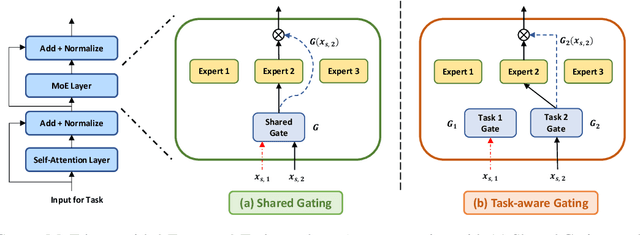

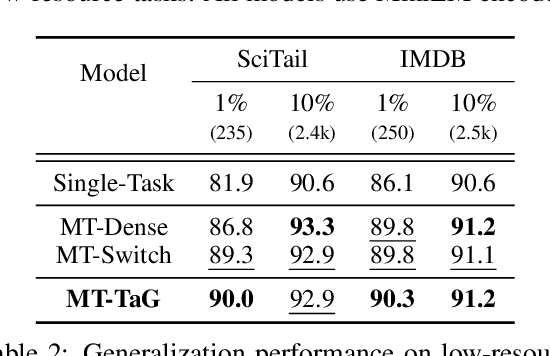
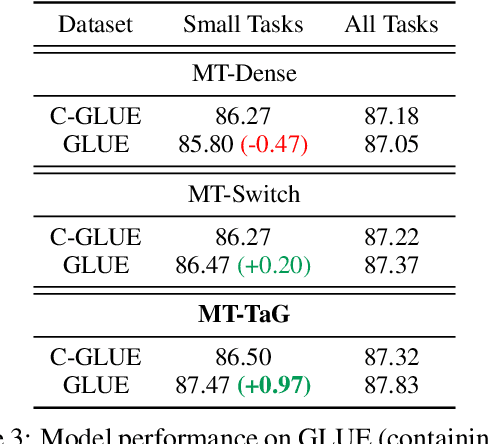
Abstract:Traditional multi-task learning (MTL) methods use dense networks that use the same set of shared weights across several different tasks. This often creates interference where two or more tasks compete to pull model parameters in different directions. In this work, we study whether sparsely activated Mixture-of-Experts (MoE) improve multi-task learning by specializing some weights for learning shared representations and using the others for learning task-specific information. To this end, we devise task-aware gating functions to route examples from different tasks to specialized experts which share subsets of network weights conditioned on the task. This results in a sparsely activated multi-task model with a large number of parameters, but with the same computational cost as that of a dense model. We demonstrate such sparse networks to improve multi-task learning along three key dimensions: (i) transfer to low-resource tasks from related tasks in the training mixture; (ii) sample-efficient generalization to tasks not seen during training by making use of task-aware routing from seen related tasks; (iii) robustness to the addition of unrelated tasks by avoiding catastrophic forgetting of existing tasks.
Few-Shot Named Entity Recognition: A Comprehensive Study
Dec 29, 2020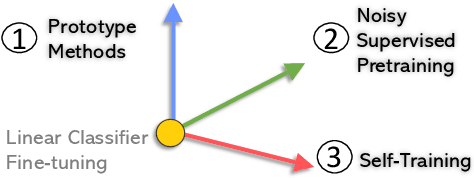

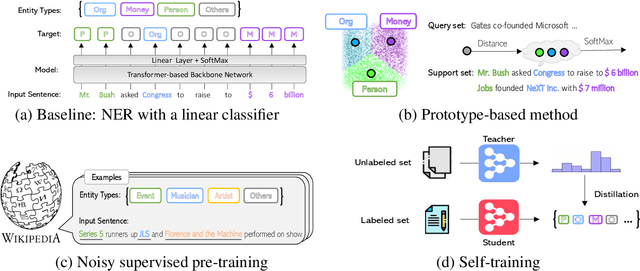
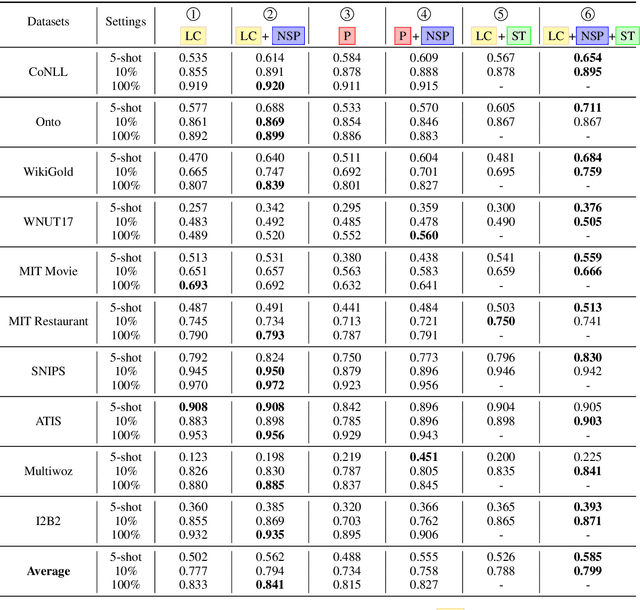
Abstract:This paper presents a comprehensive study to efficiently build named entity recognition (NER) systems when a small number of in-domain labeled data is available. Based upon recent Transformer-based self-supervised pre-trained language models (PLMs), we investigate three orthogonal schemes to improve the model generalization ability for few-shot settings: (1) meta-learning to construct prototypes for different entity types, (2) supervised pre-training on noisy web data to extract entity-related generic representations and (3) self-training to leverage unlabeled in-domain data. Different combinations of these schemes are also considered. We perform extensive empirical comparisons on 10 public NER datasets with various proportions of labeled data, suggesting useful insights for future research. Our experiments show that (i) in the few-shot learning setting, the proposed NER schemes significantly improve or outperform the commonly used baseline, a PLM-based linear classifier fine-tuned on domain labels; (ii) We create new state-of-the-art results on both few-shot and training-free settings compared with existing methods. We will release our code and pre-trained models for reproducible research.
 Add to Chrome
Add to Chrome Add to Firefox
Add to Firefox Add to Edge
Add to Edge